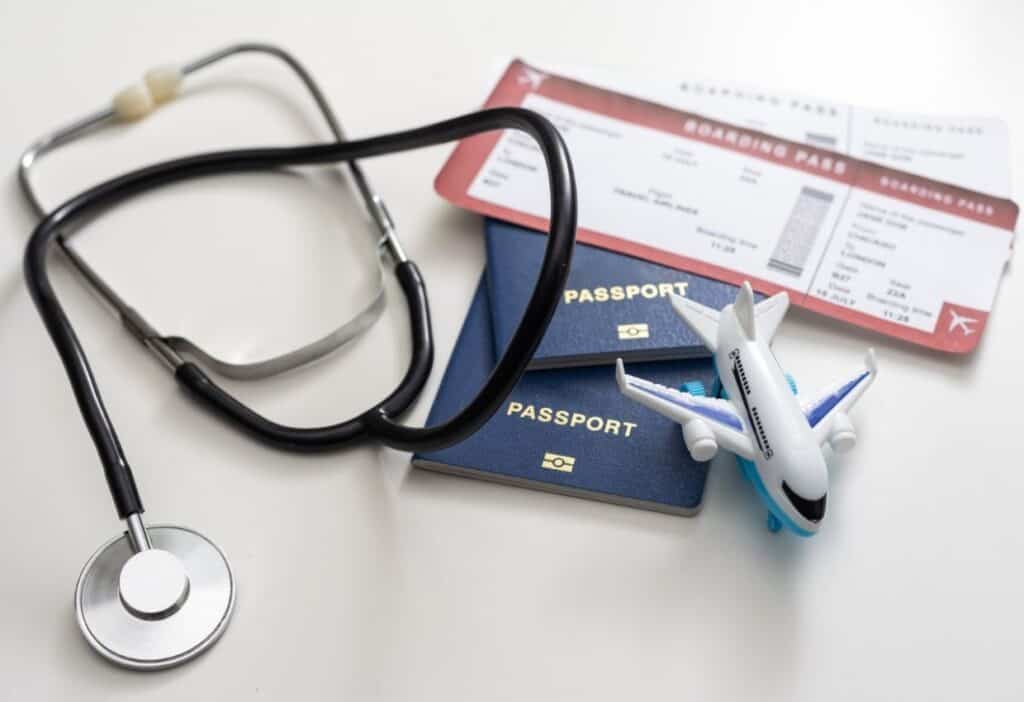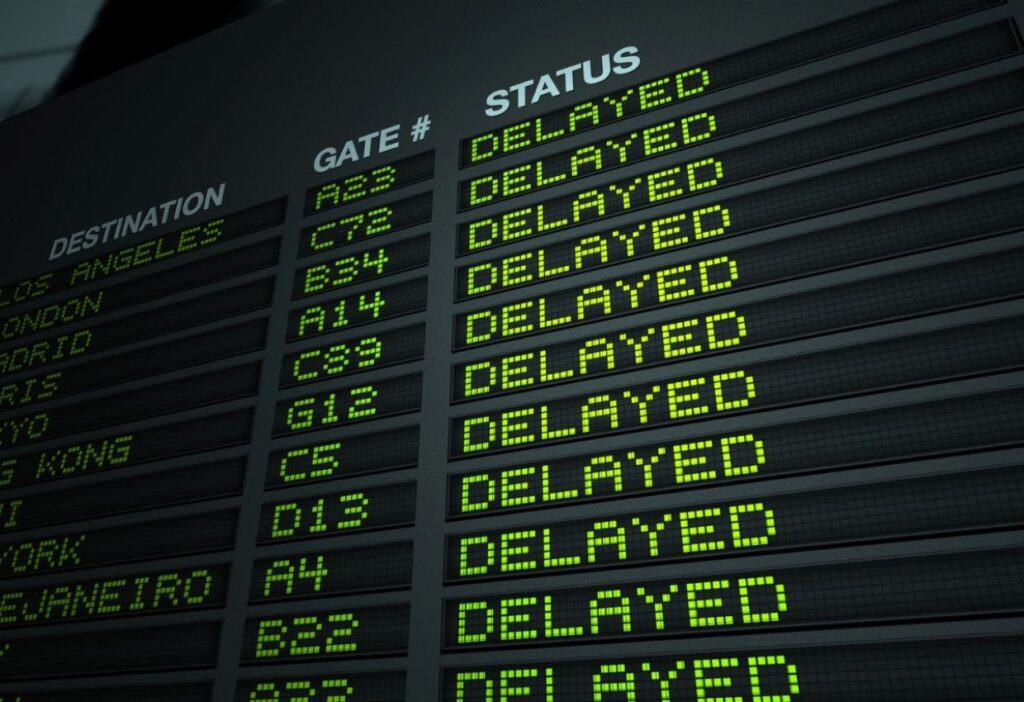Traveling to the Caribbean can be a dream vacation, but unpredictable weather, illness or other unforeseen events can quickly turn that dream into a nightmare. Only you can decide if insurance is a smart move for your trip to paradise, but these tips will help you work through your decision.

What is travel insurance?
Travel insurance is a type of insurance policy designed to cover various risks associated with traveling. It typically includes protection against trip cancellations, medical emergencies, lost luggage, flight delays and other travel-related issues.
Depending on the policy, it can also offer coverage for more specific concerns, such as evacuation due to natural disasters or political unrest. Before you purchase any travel insurance, always read through the entire policy. It’s important to understand what it does and does not cover, the process for filing a claim and the supporting documents required.
At its core, travel insurance is about peace of mind. It’s there to ensure that if something goes wrong — whether before or during your trip — you’re not left dealing with unexpected expenses out of pocket. However, not all travel insurance policies are created equal, and understanding what they cover is key to making an informed decision.
You can choose to purchase coverage for a specific trip or an annual policy that covers all your travel within a calendar year. Similarly, you can purchase coverage just for yourself or insurance that covers your entire traveling party. Rates will vary based on your age, the cost of the trip and other factors.
If you purchase travel insurance, be sure to research the companies you get quotes from. The last thing you want to do is purchase coverage and need it, only to find that the company you purchased from deserves the bad reviews you read about.
When do you need to purchase travel insurance?
If you choose to purchase it, the timing of purchasing travel insurance can be just as important as whether you decide to buy it. Ideally, you should purchase travel insurance as soon as you book your trip. Many policies offer coverage for certain situations like preexisting conditions or cancellation coverage only if you purchase it within a specific timeframe after you book travel.
If you wait until just before your departure, you can still get coverage, but you may miss out on some benefits. Some travelers choose to buy insurance right before they leave, mainly to cover medical emergencies or trip interruptions while they’re away. While this can be useful, it won’t cover any issues that arise before the trip.

What does travel insurance cover?
Every policy has different limits and coverages, so it’s critical that you choose a policy that meets your needs. Travel insurance generally covers five main areas, from trip cancelations to lost luggage.
Almost all policies include trip cancelation, though be sure to read through what cancelation reasons are covered versus those that are not. In general, if you have to cancel or cut short your trip due to a covered reason — like a family emergency, severe weather or illness — your policy reimburses you for the non-refundable costs.
Most policies also cover medical expenses incurred for emergencies while traveling, which is especially important if your health insurance doesn’t extend coverage outside your home country. This may include hospital stays, doctor visits and emergency transportation.
In case of a medical emergency or a natural disaster, some policies will cover the cost of an evacuation to the nearest suitable medical facility or back home. If you want a policy that covers this, be sure that the coverage amount is adequate for the costs you may incur.
Most policies reimburse you for the replacement of essential items if your baggage is lost, stolen or significantly delayed. Additionally, if your flight is delayed or you miss a connection due to circumstances beyond your control, travel insurance can help cover additional accommodation or travel expenses.

What are the limitations of travel insurance?
While travel insurance offers significant benefits, it’s essential to be aware of its limitations. Not everything is covered, and there are often exclusions and conditions that could affect your claim.
“I bought travel insurance for my first big post-pandemic trip, not understanding 100% what needed to happen in order to get reimbursed. With this trip, my outgoing flight was delayed for so long that I missed my connection to the Caribbean. Then, because of aviation issues beyond my control, the airline couldn’t rebook me for three days. I ended up canceling my trip, but my travel insurance only reimbursed me for the flight because it was delayed over 8 hours, which met their criteria. However, my decision to cancel did not qualify me for a reimbursement. I’m not sure if I would get travel insurance again.”
— Leah Ingram, Southern Maine on the Cheap
Most standard travel insurance policies exclude coverage for preexisting medical conditions unless you purchase a policy that specifically covers them and purchase the insurance when or shortly after you book your trip. Make sure to check the fine print if this applies to you.
If you’re planning to engage in activities like scuba diving, zip-lining or other adventurous sports, your travel insurance may not cover injuries resulting from these activities unless you buy a policy that includes extreme sports coverage. Scuba divers often choose to purchase insurance from a company that specializes in divers to avoid this issue.
Most importantly, not all reasons for canceling a trip are covered. For example, changing your mind or work obligations won’t typically qualify you for a refund. Cancel for any reason policies are available but come at a higher cost and usually only offer partial reimbursement. They have also become much less common in recent years.
Some policies may not cover travel to certain countries or regions due to high risks, such as political instability or severe weather conditions. Make sure your destination is covered, especially if you travel during hurricane season. If you skip travel insurance, you may want to consider a region less likely to be impacted by hurricanes like Aruba or Curacao.
Why are you likely to need travel insurance in the Caribbean?
Traveling to the Caribbean presents unique risks that can make travel insurance a wise investment. Always do a cost benefit analysis and evaluate your risk tolerance as you decide whether travel insurance is right for you.
If you’re young and relatively healthy and if you can afford to lose the cost of your vacation, you may choose to skip insurance. However, if you are traveling with multiple generations for a once in a lifetime type trip, travel insurance may be more of a no-brainer.
Regardless, the Caribbean is known for its hurricane season, which runs from June to November. While you might score great deals during this period, the risk of a hurricane disrupting your trip is real. Travel insurance can cover trip cancellations or interruptions due to severe weather, as well as the costs of evacuating from a storm-affected area.
Although the Caribbean is generally safe, it’s not uncommon for travelers to experience health issues, from sunburns and dehydration to more serious conditions like food poisoning or tropical illnesses. If your health insurance doesn’t cover international travel, a medical emergency could become expensive without travel insurance.
Flights to the Caribbean can be subject to delays and cancellations, particularly during hurricane season or due to other weather-related disruptions. Most airlines have limited flight schedules to Caribbean destinations compared to domestic locations, so a cancellation may delay your trip by two or three days or even longer, depending on where you booked your vacation. Travel insurance can cover the costs associated with rebooking flights, as well as additional accommodations and meals during extended delays.
Insurance is a personal decision, but you know what to look for
Purchasing travel insurance for your Caribbean vacation is a personal decision that depends on various factors, including your travel plans, health and risk tolerance. While it might seem like an extra expense you can skip, the peace of mind it offers, especially in a region prone to weather disruptions and other travel-related issues, can be invaluable. Weighing the potential risks against the cost of coverage will help you decide if travel insurance is a worthwhile investment for your next tropical getaway.
Michelle Price is a food and travel writer at Honest and Truly who almost has an empty nest. She loves to provide both the inspiration and the confidence you need to help get you into the kitchen and on the road to enjoy new flavors and experiences.